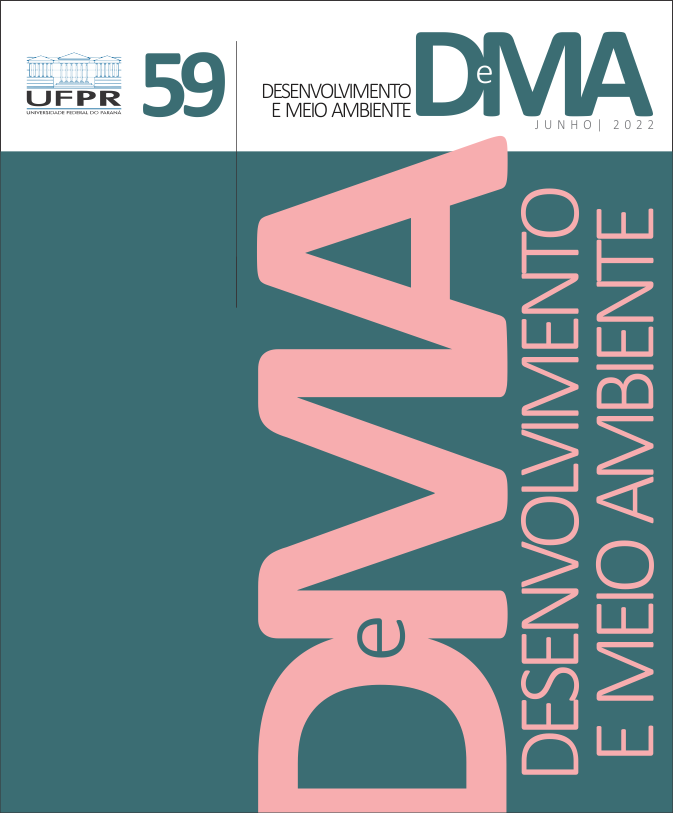Comportamentos pró-ecológicos em estudantes recém-ingressos na universidade
DOI:
https://doi.org/10.5380/dma.v59i0.73737Palavras-chave:
comportamentos pró-ecológicos, universitários, psicologia ambientalResumo
No século XXI, o tema ambiental vem ganhando enorme centralidade. Diante dos debates científicos acerca da crise ecológica em suas variações, tal como seu desdobramento climático, cresceram as preocupações. Diante disso, desde pelo menos o final dos anos 1970 vêm ocorrendo tentativas de promover acordos internacionais que possam minimizar o impacto da ação antrópica através da divulgação de ações ambientalmente sustentáveis. No plano individual, ações dessa natureza são denominadas, dentre outros termos, de comportamentos pró-ecológicos, e emergem nas interações com o ambiente e a sociedade. Elas têm sido estudadas num contexto de diversidade conceitual, mas que convergem para o sentido de condutas que protegem o meio ambiente. O objetivo do estudo foi verificar comportamentos pró-ecológicos em estudantes recém-chegados à universidade. Método: participaram da pesquisa 441 estudantes universitários primeiranistas recém-ingressos em diferentes cursos de uma universidade pública. Com uso da Escala de Comportamento Ecológico, as coletas de dados foram realizadas de forma coletiva, em salas de aula no início do ano letivo de 2019. Os dados foram analisados por estatística descritiva e inferencial. Resultados: comportamentos pró-ecológicos de economia de água e energia dos primeiranistas dos cursos de Fisioterapia e de um Bacharelado Interdisciplinar diferiram, sendo mais presentes no segundo. Ações referentes ao ativismo-consumo não pareceram afetar tanto os estudantes quanto outras ações pró-ambientais, que se apresentaram em níveis elevados. Sugere-se retomada da investigação no futuro, considerando-se a progressão de estudantes no ensino superior.
Downloads
Publicado
Como Citar
Edição
Seção
Licença
Os Direitos Autorais sobre trabalhos publicados nesta revista são do autor, com direitos de primeira publicação para a revista. O conteúdo dos trabalhos publicados é de inteira responsabilidade dos autores. A DMA é um periódico de acesso aberto (open access), e adota a licença Creative Commons Atribuição 4.0 Não Adaptada (CC-BY), desde janeiro de 2023. Portanto, ao serem publicados por esta Revista, os artigos são de livre uso para compartilhar (copiar e redistribuir o material em qualquer suporte ou formato para qualquer fim, mesmo que comercial) e adaptar (remixar, transformar, e criar a partir do material para qualquer fim, mesmo que comercial). É preciso dar o crédito apropriado, prover um link para a licença e indicar se mudanças foram feitas.
Os conteúdos publicados pela DMA do v. 53 de 2020 ao v. 60 de 2022 são protegidos pela licença Creative Commons Atribuição – Não Comercial – Sem Derivações 4.0 Internacional.
A DMA é uma revista de acesso aberto desde a sua criação, entretanto, do v.1 de 2000 ao v. 52 de 2019, o periódico não adotava uma licença Creative Commons e, portanto, o tipo de licença não é indicado na página inicial dos artigos.




